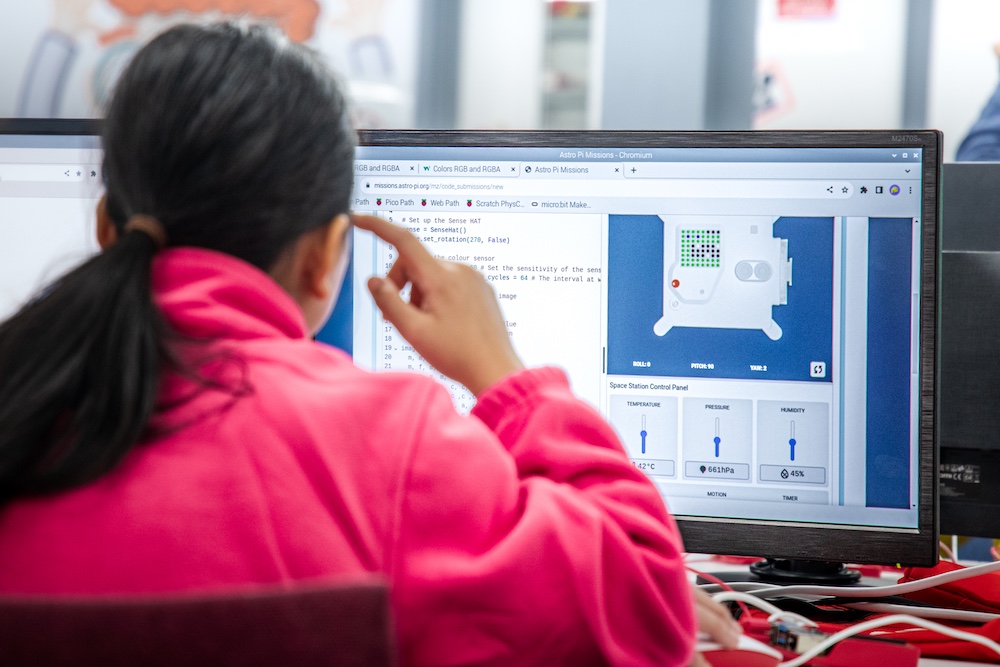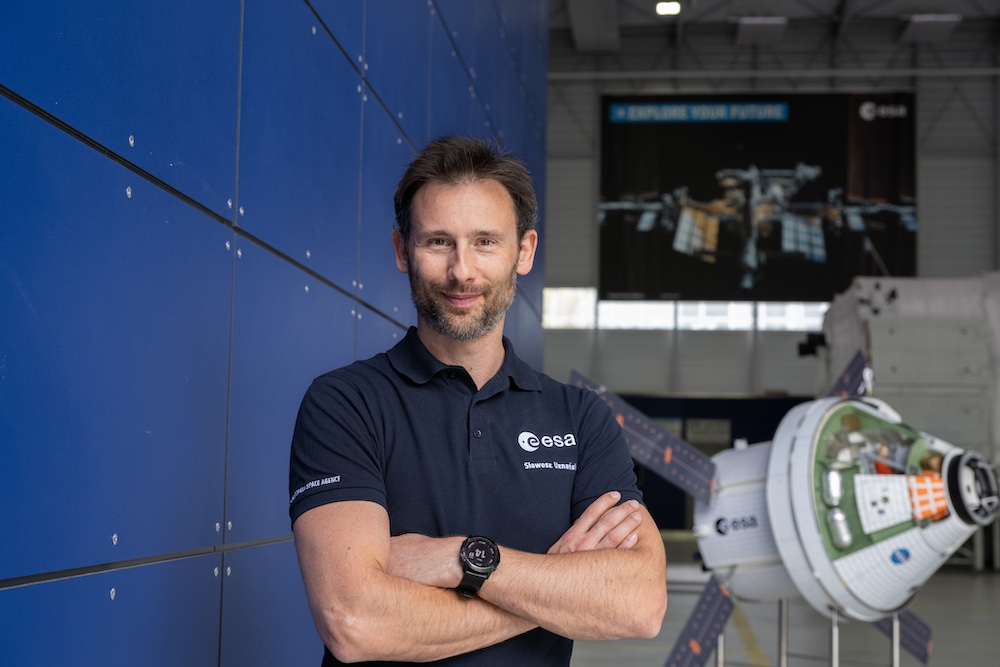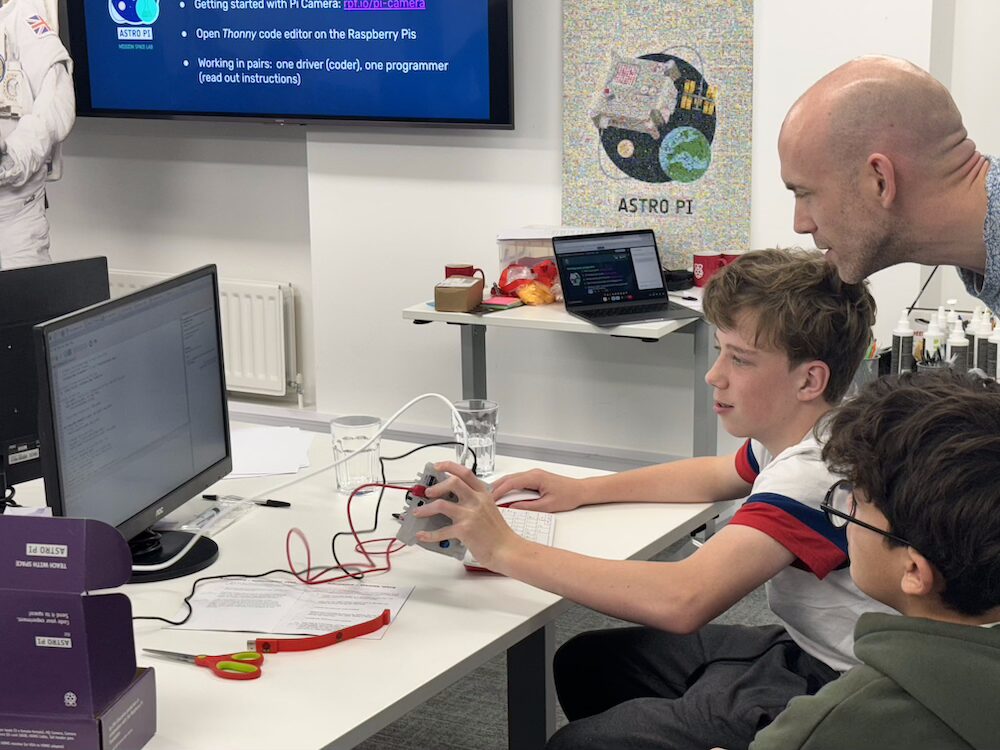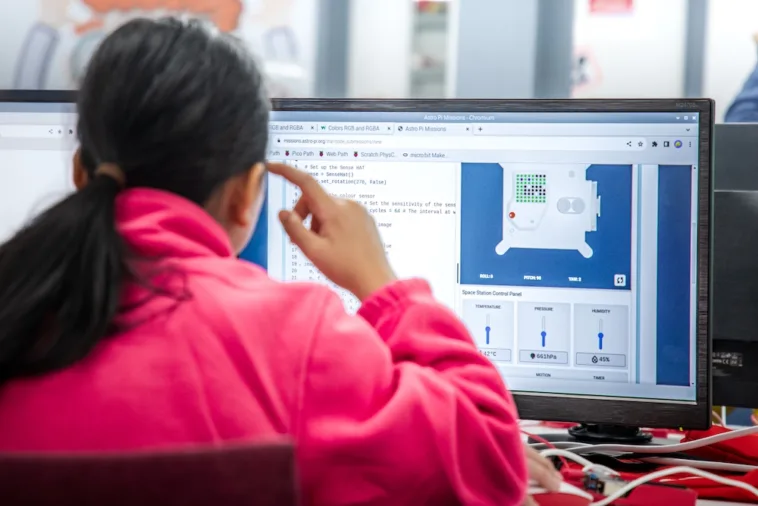We are excited to share our report on the impact of the 2023/24 Astro Pi Challenge. Earlier this year we conducted surveys and focus groups with mentors who took part in the Astro Pi Challenge, to understand the value and impact the challenge offers to young people and mentors. You can read the full report here, but here are the highlights.

What is the Astro Pi Challenge?
The European Astro Pi Challenge is an ESA Education project run in collaboration with the Raspberry Pi Foundation. It offers young people the amazing opportunity to learn how to code and conduct scientific investigations in space, by writing computer programs that run on Raspberry Pi computers on board the International Space Station (ISS). The annual Astro Pi Challenge is open to young people up to age 19 in ESA member and associate countries.
Each year, there are two missions: Mission Zero and Mission Space Lab.
Five reasons to take part in the Astro Pi Challenge
Based on the findings in this report, we wanted to highlight five great reasons to take part in the Astro Pi Challenge, and direct you to some resources to help you get started — there is still plenty of time to enter the 2024/25 challenge!

1. Young people get to run their code in space
Mentors told us how excited young people were to be working on something that connected with the real world, and how proud they were that their code ran on the International Space Station.
“Participating in Mission Space Labs offers students a great opportunity to work with the International Space Station, to see the Earth from above, to challenge them to overcome the terrestrial limits.” – Mission Space Lab mentor
2. Young people are inspired to continue to learn
91% of mentors told us that young people who successfully wrote code for Mission Space Lab were likely or very likely to participate in computing and digital making challenges in the future.
Mission Zero mentors shared that young people who saw others take part in the mission were inspired to get involved.
3. Young people learn new skills
Mission Space Lab mentors told us that young people who successfully wrote code for Mission Space Lab had a greater understanding of STEM concepts, and increased their skills and confidence in computing and digital making.
Mentors also said that Mission Zero provides a great first step into using Python.
“I think it was very good at setting up the first bit of Python and just having a very limited command set and a very quick result…” – Mission Zero mentor
- Werbung -
4. Astro Pi mentors have fun
It’s not just the young people that enjoy Astro Pi — 95% of Mission Space Lab mentors and 99% of Mission Zero mentors said they somewhat or very much enjoyed taking part.
5. We provide the resources and support Astro Pi mentors need
Mentors gave us positive feedback on the guidance we provided to help them support young people. This year, we have produced even more resources and ways to support mentors to lead missions.
“The Mission [Space] Lab guide was fantastic for my students; step by step” – Mission Space Lab mentor
How to get involved
Astro Pi opened for registration on 16 September this year, and there is still plenty of time for you to sign up and run the missions with your young people. You can find all the information you need to take part on astro-pi.org, including the mentor guides, which help you prepare to run the activities.
Mission Zero mentor guide
Mission Space Lab mentor guide
We also provide project guides for Mission Zero and Mission Space Lab that walk young people through the steps they need to follow to get a working program ready for submission.

If you would like some help getting started, you can:
Key dates
17:30 – 18:30 CET, 16 January – Mission Space Lab livestream and technical Q&A
17:30 – 18:30 CET, 28 January – Mission Zero codealong
09:00 CET, 24 February – Mission Space Lab closes
09:00 CET, 24 March – Mission Zero closes
Website: LINK

